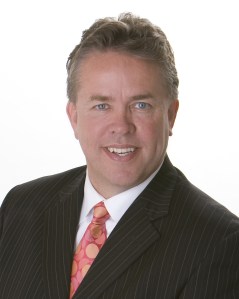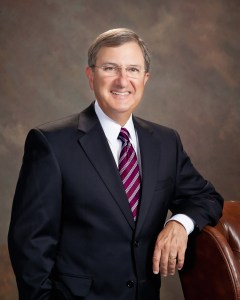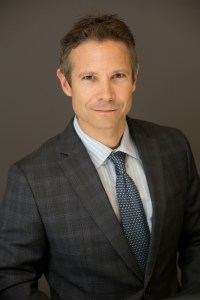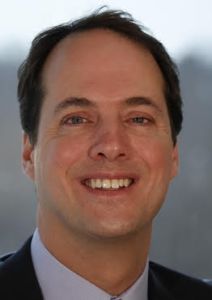
Against All Odds
The story of how 17 firms found a way to grow and prosper in the worst of times.
Against All Odds is a white paper written by Steve Murray in 2014 covering the 17 firms that found a way to grow and prosper in the 2008 Great Recession. All of the lessons learned outlined in this study are relevant for brokerage owners today.
The brokerages featured in the 2014 study are still thriving today, although they may be under different leadership and branding. Below, you’ll find the actual 2014 study and updated links to historical rankings data for these firms that includes 2022.
To sail on a dream on a crystal clear ocean
– Calypso, John Denver
To ride on a crest of a wild raging storm
To work in the service of life and the living
In search of the answers to questions unknown
To be part of the movement part of the growing
Part of beginning to understand
Executive Summary
The recovery in housing really started late in the third quarter of 2011 when unit sales turned up for the first time since 2005 — without benefit of tax credits. The turnaround came so suddenly and with such force that most were unprepared for it. They didn’t believe in its strength or endurance until the second or third quarter of 2012.
From peak to trough, unit sales of new and existing homes decreased somewhere in the neighborhood of 3.5 million units. The prices of homes being sold, depending on the market, declined in a range from 15% to 55%.
Overall sales volumes in the country fell by over $1 trillion dollars, from over $2 trillion to under $1 trillion from 2005 to 2011. If the overall economy had fallen by a similar percentage economists would have classified it as a depression, not a recession.
RealTrends has been tracking key measurements in the residential real estate industry since 1987. The RealTrends 500 is our annual ranking of the nation’s largest residential brokerage firms by both closed transaction sides and closed sales volume.
Given that 2011 marked the end of the recession and the start of a recovery, we investigated to see how well the nation’s largest firms had fared through these stormy times. We found that regardless of the market, these leading realty firms are tough, adaptable and durable.
Of the RealTrends 500 ranked firms from 2002, just fewer than 76%, or 379 firms, survived the downturn. In itself, this is an amazing testament to the skill and determination of these mostly privately owned firms — to survive no matter the market, no matter the stress on them or their businesses.
We then went a step further.
There are many ways to measure success in owning and operating a realty business. Profit is surely one key way, but this is more a result than a reason for survival and prosperity.
So, we looked at these three ways of measuring success for realty firms. First, was the firm able to grow the number of sales professionals within the organization? Second is to to measure the growth of closed transactions. Lastly, was the firm able to increase it’s per-person productivity?
We measured the 379 survivors in each of these categories. We found that there were 217 (57.3%) increased the total number of sales professionals within their ranks while the national number of Realtors was shrinking.
Some 86 (22.7%) were able to increase the total number of closed transactions during the 10 years from 2002 to 2011.
Lastly, we found that 43 (11.3%) were able to increase their per-person productivity in that time.
All three are important in measuring the health of a brokerage company. We then asked the last question, “How many firms were able to do all three in that 10-year period?” The answer was 17.
Seventeen firms out of 379 (4.5%) increased the number of sales professionals, closed transactions and increased their per-person productivity over that period of time.
We compared each of these firms against their local and regional peers to see how their performance stacked up. The results were startling.
Who are these companies? Who are these leaders? What did they do to get this done? Was it through mergers and acquisitions? Was it through increased use of technology, marketing services or the web? What separates these 17 firms from the others?
In December 2012, we were determined to find out. We arranged interviews with the owners and operators of these firms to put the question to them — exactly how did you accomplish this? Most were completely unaware of what they had accomplished and were surprised to discover that they had done so.
These firms have different brand names, business models and operate in different markets. There were firms from Florida, Georgia, Arizona and Michigan — four of the hardest hit markets in the country. There were firms with fewer than 100 sales professionals and a few with over 700. Size didn’t matter, nor did model or affiliation. So what was it that they did that made a difference?
Each of these 17 had their own stories to tell and we will use quotes from each to outline what they believe made the difference. While there were differences between the tactics that each firm used, there were more similarities than differences.
Rather than tell you how they accomplished their goals we will let these leaders tell their own stories.
The 17’s Historical Data
Click on each to view their historical RealTrends data. View any submissions they’ve made to the RealTrends 500 from 2003-2022 along with statistics.
Be intentional in your planning and your focus
“Focus on finding people who have the right blend of skills, attitude and attributes that increase their chance of success.”
David Lutton, CEO, | The Charles Reinhart Company | Ann Arbor, MI

“We focused intently on keeping all of our people well informed about what was going on with both the market and our company.”
Eddie Wilder, CEO, | ERA Wilder | Columbia, SC
“Instead of a frontal assault on the market, we sought niches throughout our market area that were underserved. Adding rental services and retaining sales associates who speak a foreign language or languages turned out to be a huge advantage.”
Michael Maloof, CEO, | Jim Maloof Realtors | Peoria, IL
“Build relationships with your people more than ever before and seek those who are most interested in the overall value of a relationship, not those who seek cheap.”
Barry Kramer and Ashley Van Winkle, Operating Partner and Team Leader | Keller Williams Sonoran Living | Phoenix, AZ
“Our goal became not to be the biggest but to be the most productive, the most professional. There is no one way to succeed, but pick one and adjust as you move along.”
Patrick Finnick, CEO, | RE/MAX Center | Duluth, GA
“We looked at the market slowing and concluded that to grow we would have to focus on market-share growth, so that became among our top priorities.”
Chris Meyers, Partner | Houlihan Lawrence | Bronxville, NY

“Our main focus has always been making small, incremental improvements in everything we do every day. That and a focus on keeping everyone informed and engaged counted greatly.”
Dan Forsman, CEO | Prudential Georgia Realty | Atlanta, GA
“We work every day, all-the-time on building strong relationships with not only our own people but with all of those in the market with whom we work with, to get deals done for clients and customers”
Casey Cook, Operating Partner | Keller Williams Realty | Oklahoma City, OK
“Although we continued to add sales professionals through the downturn, our big success came from focusing more on the people we had than the ones we wanted to recruit.”
David Reault, CEO | CENTURY 21 Row | Livonia, MI
“We made a concerted effort to approach and combine with other firms in our markets which resulted in significant growth. Additionally, we focused on controlling as much listing share as we could.”
Bruce Tucker, CEO | Prudential Utah Elite | Orem, UT
“We were in a position to acquire other market centers in our market which contributed significantly to our growth. Just as importantly we committed to our management team that we would not retreat, that they would be kept whole.”
Shaun Rawls, Partner | Keller Williams Realty The Rawls Group | Atlanta, GA
“We kept a laser focus on recruiting and growth through small roll-ins and combinations to keep growing.”
Steve and Nancy Summers, Partners | Realty Executives of Kansas City | Kansas City, MO
“We decided that as close as we felt to our sales professionals we needed to get much closer still. These terrible times required stronger more intimate relationships that were real.”
Carla Thompson, Reata Connor and Erica Hill, Team Leaders and Operating Partner | Keller Williams Boise | Boise, ID
“We decided not to fight the battle on the basis of price but rather on the value we deliver to our sales professionals.”
John Mangas, Kathy Kuyoth, Partners | RE/MAX Preferred | Toledo, OH
“We focused on bringing our people together, sharing what is working for all and cutting frills that didn’t matter to sales professionals.”
Kevin Chadwick, Operating Partner | Keller Williams Realty | Brandon, FL
“We focused on two things only. First, keep sales professionals positive, productive, professional and profitable. And align the goals of our staff with those of our sales professionals.”
Dennis and Mary Lou Steed, Partners | RE/MAX Crossroads | Strongsville, OH
“We focused on shifting our business to have our people conduct their business where the business is now, not where it was yesterday which was REO and other forms of distressed property and distressed families.”
Eddie Mallad, CEO | RE/MAX Crossroads
Think you’re close to your people? Get closer still.
“We became much more open to our staff and sales professionals. They all now participate in our planning. Rather than the owners telling everyone what we are going to do we let our people tell us what is possible.”
Eddie Wilder
“We constantly look for someone doing something extraordinary for a client, customer or other sales professional and recognize and reward it.”
Michael Maloof
“Getting success through others is one the toughest challenges in business. But you have to know your people well enough to know what will best help them to achieve their goals.”
Barry Kramer and Ashley Van Winkle
“The goals we set for our company were not set by the owners alone, but rather with all of our people.”
Patrick Finnick
”We found that having as many office get togethers as possible is a great way for people to get to know each other and support each other.”
Casey Cook
“We take every chance we get to build friendships and relationships both inside our company and with others in the market.”
Bruce Tucker
“Our goal was to build the most respected and trusted organization in our market, not just real estate companies but any companies. No cuts, no service reductions just strong enduring support.”
Shaun Rawls
“Real estate sales professionals and staff are just people who deal with life like anyone else. While we were close to our people in the past, we have discovered that getting to know them as individuals, on a very personal level, was rewarding for them and for us.”
Carla Thompson, Reata Connor and Erica Hill

“The truth is that we found a great group of leaders in our company who put themselves on the line for everyone in the company and it made all the difference in the world. Staying close to your people is not a business choice; it is the only way to succeed.”
Kevin Chadwick
Be and act strategically
“We invested in and realigned our staff to be totally in line with our sales professionals.”
Dennis and MaryLou Steed
“We recreated our office as a ‘refuge’ for our team a-place where they felt welcome and safe”
Carla Thompson, Reata Connor and Erica Hill
“When the market become dominated by REOs, we shifted our whole focus to being the best firm in the market to service those clients and customers.”
Eddie Mallad
“We executed extremely well on small acquisitions to expand our company as a means of much of our growth.”
Steve and Nancy Summers
“Two things: first, a full time focus on providing education on a consistent and regular basis. Second, develop the absolute leading-edge informational tools for our sales professionals.”
Shaun Rawls
“We focused intently on gaining our share of the listings in our market and directed a huge part of our effort there.”
Bruce Tucker
“We looked at the change in the market and decided to re-allocate marketing and advertising resources away from print and significantly into the internet and the tools to maximize our returns there.”
David Reault
“We intensified the development of our leadership team so that we were all up to date at all times on what was happening in the market and in our company.”
Dan Forsman

“We determined that our sales professionals needed to be the best informed in the market about the true condition of the market so we developed a range of unique market tools that they could share with their clients and customers.”
Chris Meyers
”We were able to successfully acquire two other offices that fit well with our office and our culture.”
Patrick Finnick
“We built a full-service high-value brokerage firm rather than play with those who were most concerned about price.”
John Mangas
“Like most firms we had to reduce costs. What we focused on was making cost reductions as invisible as possible to our sales professionals.”
David Lutton
Conclusion
It was not luck that created the success that these 17 firms achieved. It was not new technologies or educational programs.
In fact, not one of these firms was even aware of what they achieved until we brought it to their attention. For most of these leaders, it was the first time we had ever spoken with them.
They saw what was happening, and they acted. They each developed unique answers to the challenge of their markets. They bet their reputations and fortunes on what they thought would work, would, in fact, work.
They developed a plan of action. They got even closer to their people, got their people more involved in working together, and they adapted along the way.
A funny, somewhat cynical statement we have heard is, “when all is said and done, more gets said than done.” For these 17, and for all 379 firms that survived the 2009 housing downturn, a lot more got done than said.
Steve Murray, Founder of RealTrends
This report was originally published in 2014 and the firms mentioned may have changed names and affiliations. In addition, some executives have retired.
